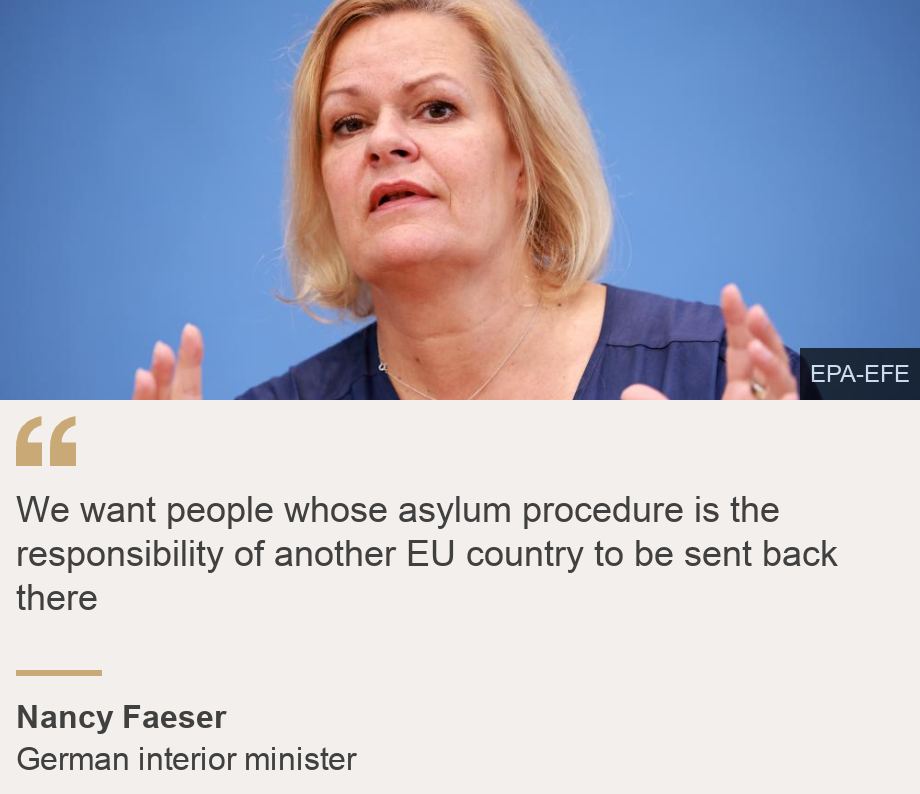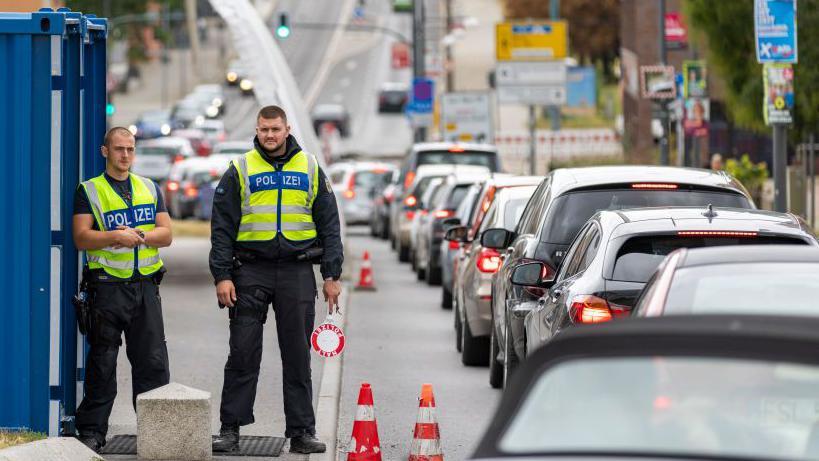Polish Prime Minister Donald Tusk has called Germany’s decision to extend temporary controls to all country’s borders as part of a crackdown on illegal migration “unacceptable”.
He is among figures from neighbouring countries who have criticised the move. Restrictions already in place at some of Germany’s borders will apply to France, Belgium, the Netherlands, Luxembourg and Denmark from next Monday.
The leader of a Dutch-German alliance of border communities spoke of a “panic reaction”, while the Austrian interior minister stressed that no people rejected by Germany would be taken in.
However, Germany’s conservative opposition parties felt that Berlin had not gone far enough.
The three parties in Chancellor Olaf Scholz’s government are under increasing pressure to respond to poor results in state elections in eastern Germany, where immigration was the biggest issue.
In Thuringia, the far-right Alternative für Deutschland was the first party and in less than two weeks there will be new elections in Brandenburg.
The migration debate has been fueled by the murder of three people at a festival in Solingen, West Germany, during which a Syrian asylum seeker who had been rejected and should have been deported was arrested.
The conservative CDU/CSU parties initially said they would take part in a migration summit of government and state leaders on Tuesday, with the aim of reaching an agreement on next steps.
But they backed down, accusing the government of not taking seriously Conservative proposals to turn away asylum seekers at the border.
“It is clear that the federal government is hopelessly divided internally and cannot agree on effective measures,” said CDU leader Friedrich Merz.
Germany and all its neighbouring countries are part of the Schengen border-free zone and are subject to the rules of the European Union temporary controls are allowed “as a last resort” measure, in exceptional situations, for a maximum of six months.
German Interior Minister Nancy Faeser explained that the expanded checks would provide protection against the “acute dangers of Islamist terrorism and serious crime”.
Under her plan, which she presented to Germany’s 16 states, police would check whether an asylum seeker had already sought protection in another EU country and, if so, they would be sent back as quickly as possible.


However, Poland’s prime minister had no doubt that the measures were the result of “the domestic German political situation… and not of our policy on illegal migration at our borders”.
Poland has been facing a surge in illegal migrants crossing its border with Belarus since 2021, which it sees as part of a “hybrid war” waged by both Belarus and Russia. Many of the migrants are heading to Germany.
Donald Tusk told a meeting of Polish diplomats in Warsaw that he would urgently request consultations with all affected countries.
European Commission spokeswoman Anitta Hipper said any reintroduction of border controls must be in line with the Schengen Code. While Germany’s measures are possible, they must be “necessary and proportionate.”
In Austria, where the far right is leading polls ahead of the September 29 election, Interior Minister Gerhard Karner said he had ordered the police chief not to take back anyone rejected by Germany.
“There is no room for manoeuvre,” he told the Frankfurter Allgemeine Zeitung.
The mayor of a Dutch border town, Joris Bengevoord, said the border region with Germany had already faced delays during the 2024 European Football Championship last summer, when Germany imposed temporary border controls.
“At some border crossings, waiting times were up to half an hour,” said Mr Bengevoord, chairman of the Euregio Alliance of German and Dutch border towns.
The Dutch transport company TLN accuses Germany of undermining the Schengen Agreement.
Some right-wing political leaders in the Netherlands think differently about this.
“If Germany can do it, why can’t we?” asked Geert Wilders, whose anti-immigration, far-right Freedom Party came first in last year’s Dutch elections and is now part of the government. “As far as I’m concerned, the sooner the better.”
Dilan Yesilgöz of the centre-right liberal VVD was also enthusiastic about the “super interesting” German plan. It sent the message that the government wanted control, she said, even if political symbolism alone did not help much.







